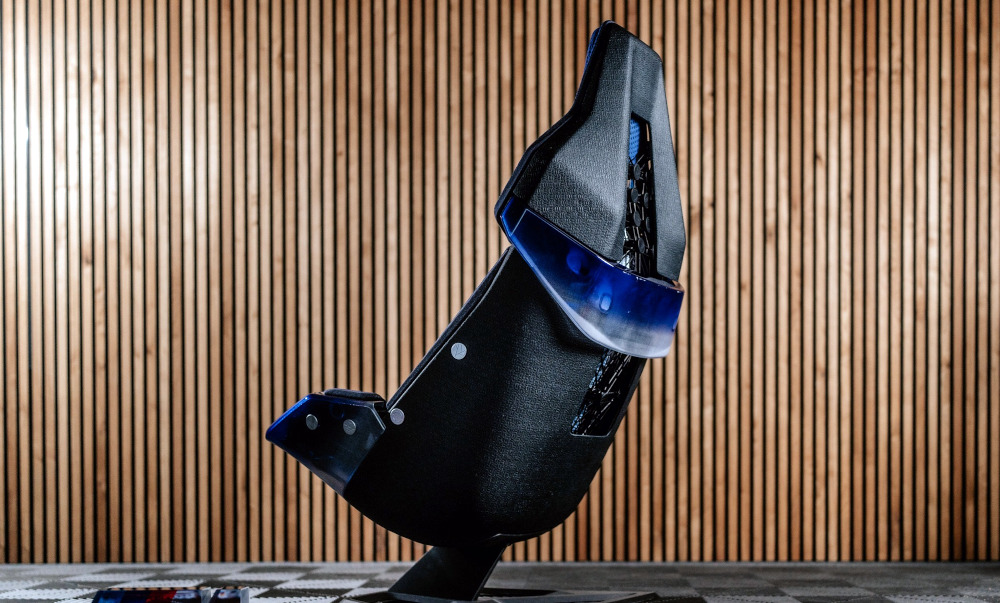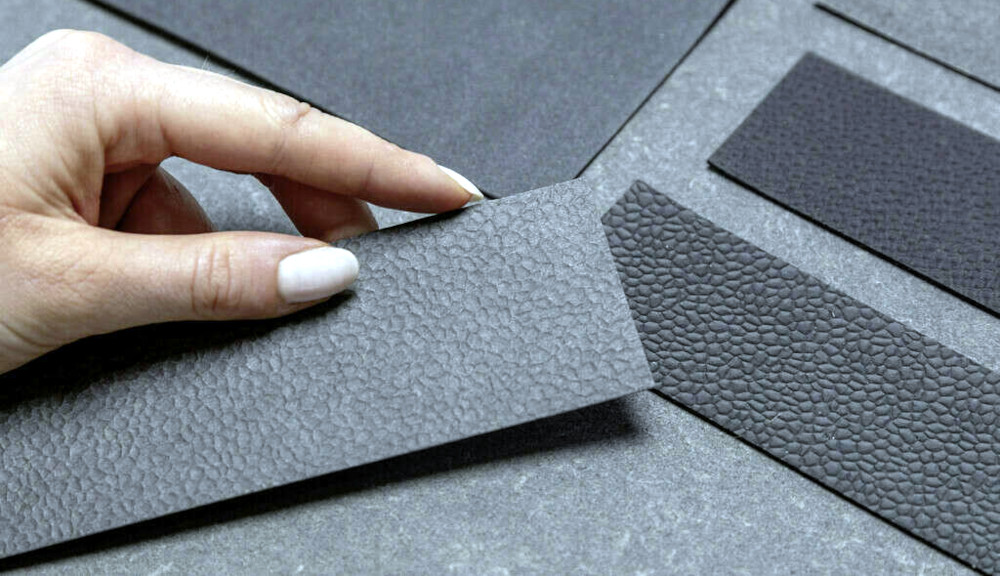More and more automakers — including Bentley, Ferrari, Ford and Tesla, to name a few — have been developing circular, plant-based material innovations for use in their vehicles; and BMW and Volkswagen have joined the fun.
BMW’s circular seat design wins award
 Image credit: Bcomp
Image credit: Bcomp
A collaboration between BMW M
— the performance-car subsidiary of BMW Group — and Swiss lightweighting
specialists Bcomp has been recognized by Altair’s
2024 Enlighten Awards, which highlight the
global automotive sector’s most innovative, sustainable developments. The
BMW M Visionary Materials
Seat, which rethinks the composition of car seats and is
manufactured with Bcomp’s ampliTex™
flax-based materials, won in the Sustainable Process category for its
lifecycle focus.
“We are already using existing technologies and materials to provide an outlook
on the possibilities for reducing emissions and conserving resources in the
future,” said Falco
Hollmann, Innovation
Manager Lightweight Construction & Sustainability at BMW M, when he
accepted the award. “This is not just about the substitution of materials, but
above all about the topic of design for circularity.”
The winning seat design re-envisions conventional manufacture and component
materials to introduce a lighter, circular product that meets the demands of
large-scale vehicle production. In addition to using natural and recycled
materials, less complex assemblies and monomaterials can be separated by type to
enable the recyclability of the seat at the end of its life. Bcomp says its
flax-fiber composites are CO2e-neutral from cradle to gate, can reduce
manufacturing-related emissions of high-performance composite parts by up to 85
percent compared to carbon fiber — depending on the application — and weigh up
to 50 percent less than current, large-scale automotive plastic parts.
Bcomp – founded as a garage project in 2011 with a mission to create lightweight
yet high-performance skis — has become a leader in high-performance, natural
fiber composites for the mobility-, recreational-, and mass transportation
sectors. The company also made a recent splash at NASCAR’s annual Chicago
Street Race, when the racing organization unveiled a prototype of an all-new
battery electric vehicle (BEV) with a body made from Bcomp’s flax
fiber
composite material. The plant-based material promises to reduce CO2 emissions of
traditional carbon fiber by up to 85 percent at similar stiffness, and improve
safety in motorsports thanks to a breaking behavior without sharp shattering — a
safety aspect that is especially relevant in bumper-to-bumper racing.
BMW first started to work with Bcomp’s materials in 2019 when it used
high-performance, natural-fiber composites in the BMW iFE.20 Formula E
car.
VW trialing hemp-based ‘leather’ for car interiors
 Image credit: Volkswagen
Image credit: Volkswagen
Meanwhile, Volkswagen has partnered with German startup
Revoltech to research and develop bio-based
materials based for use in automotive interiors.
The winning candidate, called LOVR™
(leather-free, oil-free, vegan, residue-based), is Revoltech’s first textile
solution. Made from residues from the regional hemp industry, LOVR is 100
percent plant-based, plastic free, fully recyclable and biodegradable, and can
be molded into a variety of textures and finishes — including, for Volkswagen’s
purposes, “leather.” The carmaker is testing LOVR for use as sustainable surface
material in Volkswagen models from 2028.
LOVR joins a growing variety of
plant-based
and
circular
leather alternatives that are offering product designers the same feel and
durability as their bovine counterpart, without the environmental
trade-offs
that can often come with conventional leather. Due to its versatility and ease
of processing, Revoltech says LOVR can be produced using existing industrial
processes — for easy scalability and integration into large-scale manufacturing
— and is a good candidate for use in industries including furniture, fashion and
automotive.
“The sustainable use of resources is a key pillar in our ACCELERATE strategy and
is therefore firmly anchored in our mindset and our actions. Our clear goal is
to fuse customer wishes, sustainability requirements and corporate interests,”
said Andreas
Walingen, Head of
Strategy at the Volkswagen brand, adding that the collaboration was a good
example of the benefits to be gained from the targeted combination of the
respective strengths of startups and established companies.
Volkswagen says the first presentations of LOVR have received a positive
response and feedback from customers.
Get the latest insights, trends, and innovations to help position yourself at the forefront of sustainable business leadership—delivered straight to your inbox.
Sustainable Brands Staff
Published Sep 6, 2024 8am EDT / 5am PDT / 1pm BST / 2pm CEST